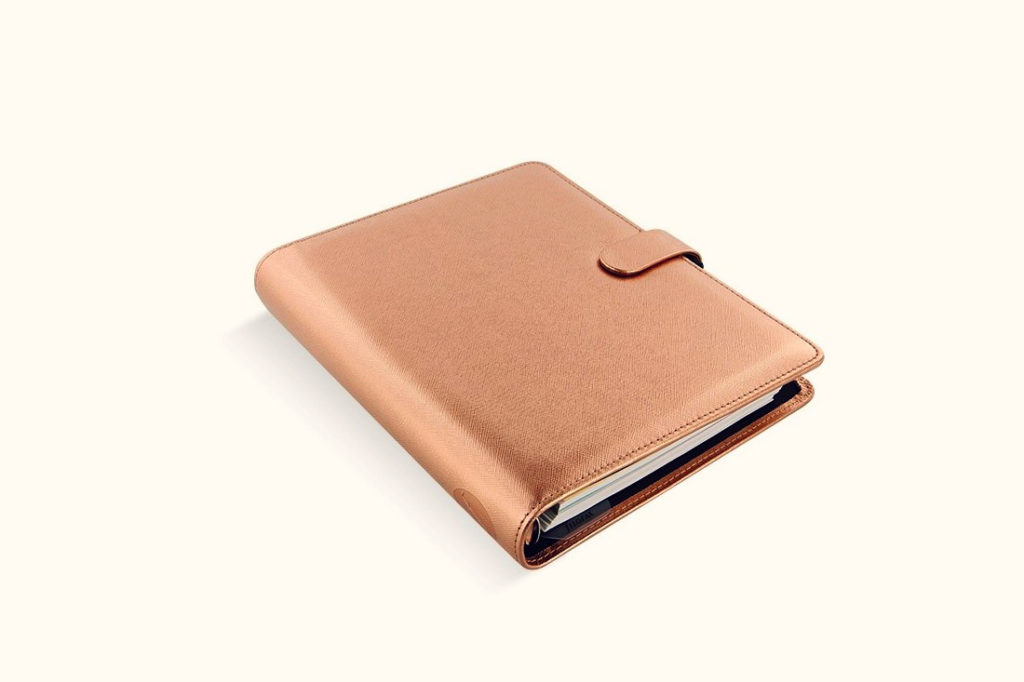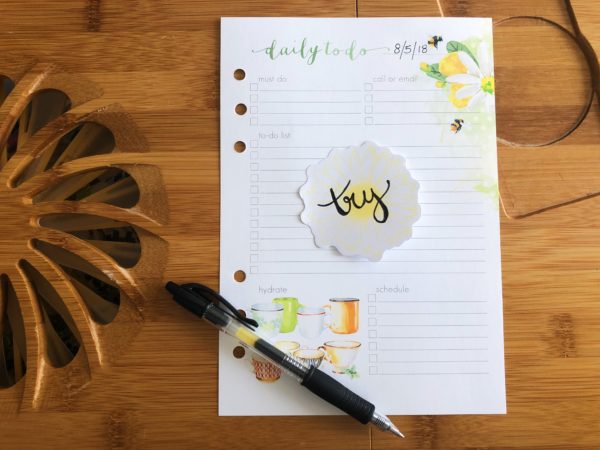When I was an itty bitty person, my uncle Jewel ran the family business from the (slightly illegal) in-law apartment under our house.
The night before I started first grade, I remember going down to the office to see Jewel1. The tiny room was lit by a single large desk lamp; there were cubbies lining one wall, holding stacks of paper including the letterhead he had designed himself. He told me that he’d recently ordered a lot of custom stationery from Los Angeles, and he pulled out a stack to show me. They were a Lisa Frank generation fever dream: black paper with tiny white polka dots, lined teal, lavender with white graph squares, hot pink with white stars, and every conceivable permutation, all with matching envelopes2. I shared his palpable excitement, weighing the heavy paper in my hands.
In retrospect, this is clearly my origin myth. Proust had his madeleine; I have stationery.
I like being organized, I love feeling organized, and I love looking organized more than I love feeling organized. At any time, I will invariably have a wall calendar, a desk calendar and a paper calendar at home and one of each for work, and probably around 40 organizational and productivity apps I’m evaluating or using or trying to get myself to use or trying to make other people use or just haven’t deleted yet. I have every color of dry erase pen, Sharpie, and Pilot g2 0.38mm3. Until very recently, I used these tools to manage a very complicated family with four different personal calendars and again as many extracurricular and sports calendars and my grandfather’s calendar and of course my work calendar and at least 8 other sub-calendars I made up.
I complained incessantly about how exhausting it was because it was exhausting but of course I also liked having important things to put into a calendar and cool calendars to put them in. I lived by the lists I drew up–packing lists, grocery lists. When one of my children suddenly informed me in the car at 7:50 AM that today was the day they were supposed to go on a Segway tour of the secret catacombs under Mount Rushmore with Barack Obama and Jimmy Carter and they were going to need two $10 bills, a grappling hook, and a bag lunch by 8:15 I would invariably and tiresomely repeat the sentence if it’s not written down, it doesn’t exist4. If an event is not on any calendar or on any list, I can’t be expected to be in any way prepared. I have not written it down, so it’s not happening.
What if I haven’t written anything down because nothing is happening?
I’ve spent a lot of time, these past few months, making elaborate lists and adding events to calendars. If I add a birthday party to the calendar, will I feel well enough to go? If I create a careful, step-by-step list of what the kitchen needs to get it back on track, will that give me the energy to go clean out the refrigerator?
Until very recently, my day went like this:
- have coffee5
- shower/get dressed
- set up with bed desk + tea
- write a detailed list in several pen colors of what needs to get done today/this week/this month
- drowse guiltily for the rest of the day
You’ll be seeing a few problems, among them that items 2-4 take a lot of energy and thus were often the only things that happened, and that was on a great day. I didn’t want to see these problems. Lists, calendars, post-its–It sounds silly, I know, but they’re my operating system. They’re how I get things done. And if I’m not getting things done, what am I really doing? What’s the sense in writing down the things I’m likely to get done today? The least good days are like
- have coffee
- take pain medication at regular intervals
- watch Chopped6
- think irritated thoughts at the Chopped contestants who attempt risotto7
- drowse guiltily for the rest of the day
What’s the point in expending needless energy writing any of that down? Is it any worse to page back through my agenda and see that, no matter what, I definitely accomplished a lot of guilty drowsing?
But, if I don’t write anything down, am I really doing anything? If I’m not doing anything, what is the entire point of me?
My man Prufrock says he has measured out his life in coffee spoons8. What if you don’t have any spoons at all? What are you even measuring?
So I stopped measuring. About a month ago, when things got really real for a minute there, I stopped making lists, which means I stopped really making plans9. Just shut down the ol’ operating system. You couldn’t tell, on the outside, but that’s not a good sign. You should have some plans, even if you mostly plan to take enough pharmaceuticals to make life tolerable but not too interesting.
A little bit after that I discovered A New Craft10.
Did you know that there are people who buy Filofax planning systems and Day Planners and monthly calendars and other binders/folders/configurations that are equally expensive and decorate the calendars and the to-do lists and the note pages and/or design new ones and/or add photos?
Reader, I bought one without knowing one more thing about this business. And I bought the sparkliest one I could find.

It is basically an absurdly expensive Trapper Keeper11.
However, when once I had my Filofax A5 Saffiano Trapper Keeper, as well as a quantity of supplies and accessories whose dollar value I don’t think I’m specifically required to disclose but is more than you can imagine, I discovered something interesting. It is actually hard to write down dozens of To Dos and Calendar Appointments and Goals on a piece of paper that has a lot of die cuts or stickers or washi tape or beads or like feathers on it. Not impossible, but not that easy and definitely not particularly necessary.
You could even write, let’s say, one line item for the day.

Oh, about the title: a discussion with a very smart lady today reminded me that the goal you set out at the beginning of the day doesn’t have to be what you ended up accomplishing. You can just be glad you made it to the end of the day. You can always move the goalposts. It’s your game.
